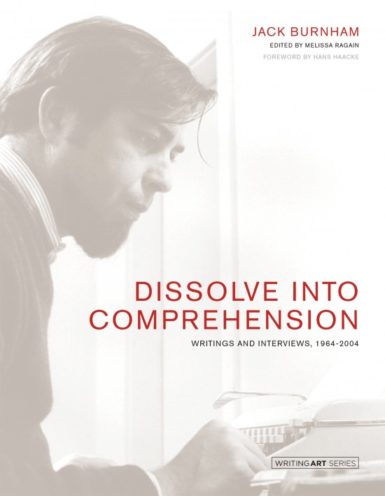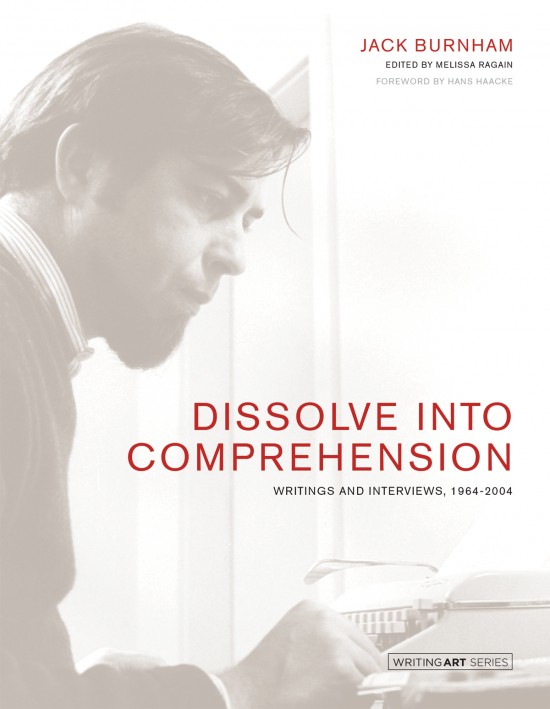[ad_1]

COURTESY MIT PRESS
Jack Burnham, whose art criticism frequently dealt with the relationship between contemporary artworks, technological developments, and systems, has died at 87, according to Artforum, which first reported the news.
Burnham curated the groundbreaking 1970 exhibition “Software — Information Technology: Its New Meaning for Art” at the Jewish Museum in New York, which presented works by some of the day’s most open-minded artists alongside examples of nascent computer technology. Works by Hans Haacke, Nam June Paik, David Antin, Vito Acconci, Agnes Denes, and many others were included in the show, which eluded many critics of the time. The New York Times critic Grace Glueck called the show “confusing,” writing, “It certainly will put some old brains (like me) less in touch with ‘new art,’ however, than with memories of futuristic exhibits in old World’s Fairs and museums of science and industry.”
“Software” remains one of the most important exhibitions in the history of art and technology, and has been an inspiration for curators showing digital art today. It was in some ways an elaboration on themes addressed in Burnham’s 1968 book Beyond Modern Sculpture: The Effects of Science and Technology on the Sculpture of the Century, which is today considered one of the most important writings related to the systems-art movement of the 1960s and ’70s.
Around the same time as “Software,” Burnham became involved with Artforum, where he served as contributing editor from 1971 to 1972. In 1968 the magazine published his essay “System Esthetics,” which proposed that contemporary art of the late 1960s had been informed by an interest in systems derived from recent technological innovations. “We are now in transition from an object-oriented to a systems-oriented culture,” Burnham wrote. “Here change emanates, not from things, but from the way things are done.”
For almost three decades, Burnham worked in art history departments, at such schools as Northwestern University and the University of Maryland. In 2015, MIT Press published an anthology of his writings, Dissolve into Comprehension: Writings and Interviews, 1964–2004, which was edited by Melissa Ragain.
[ad_2]
Source link

